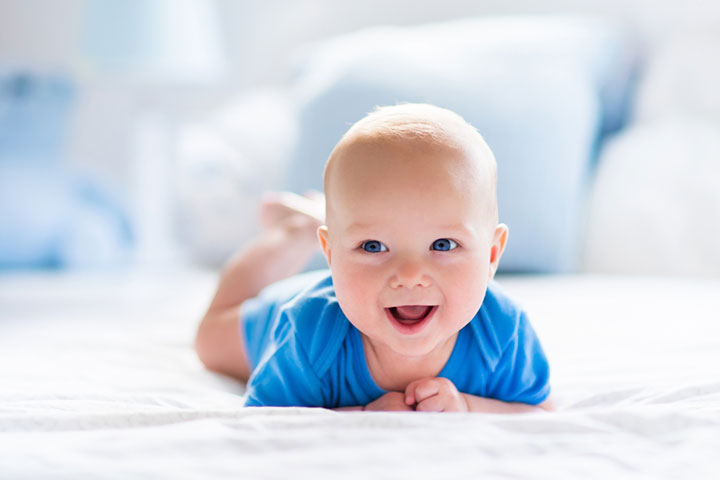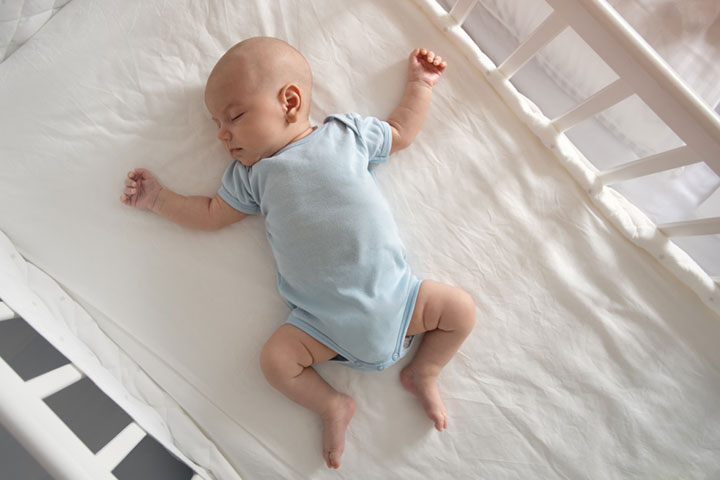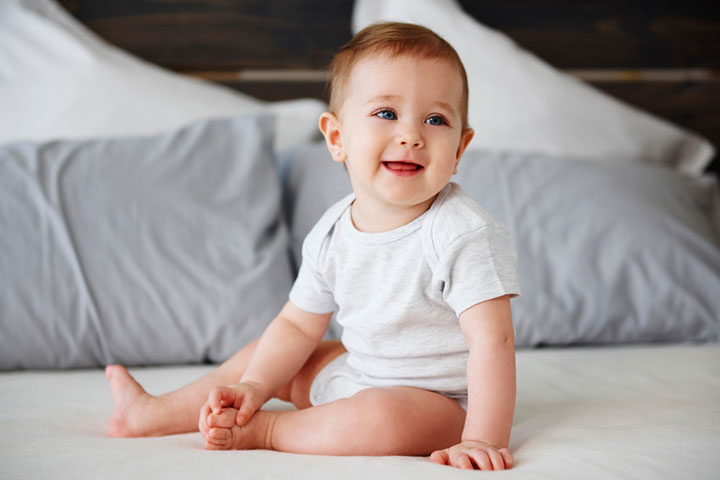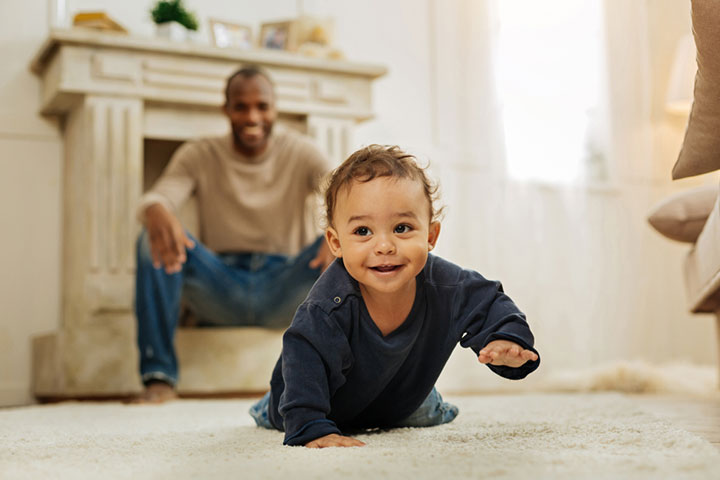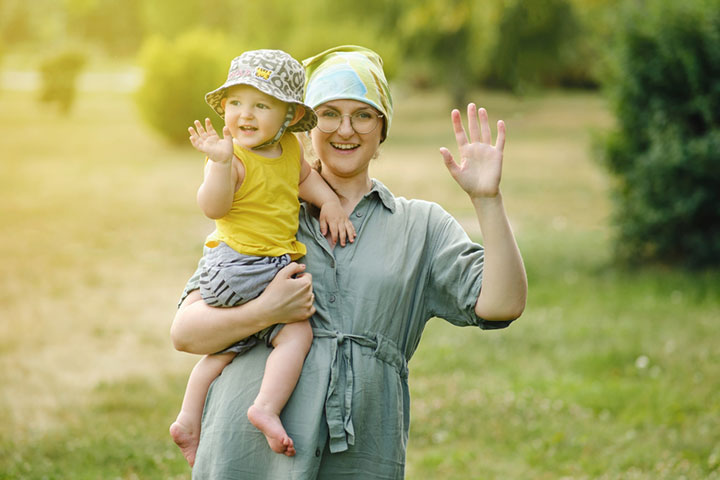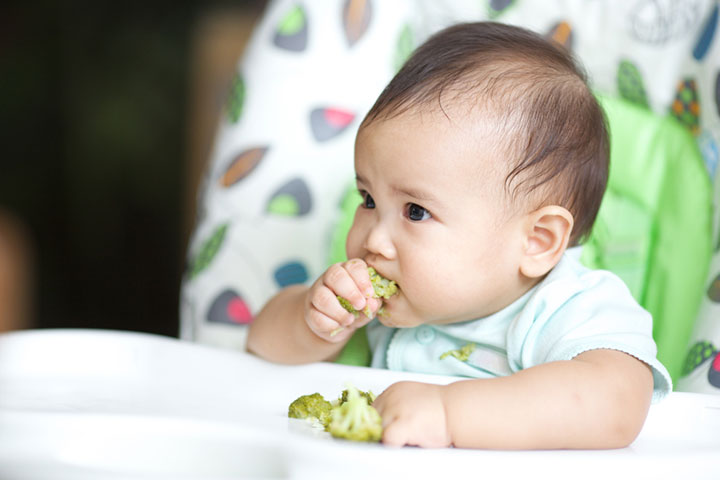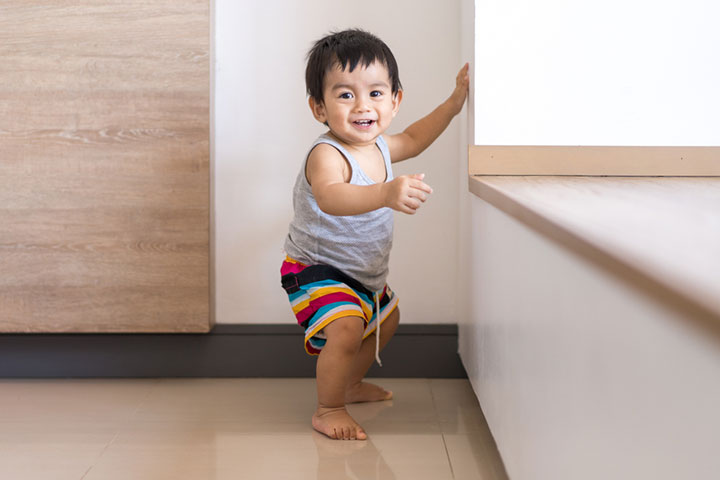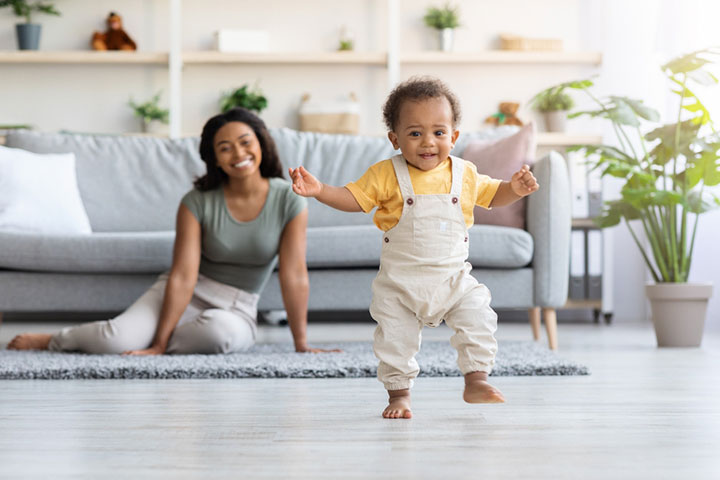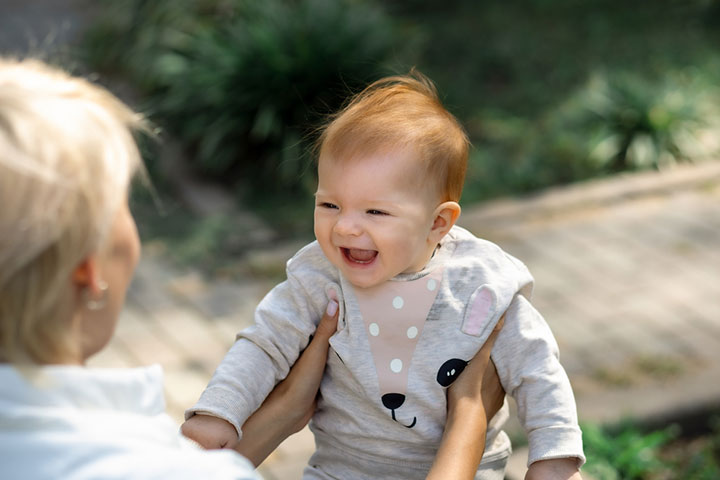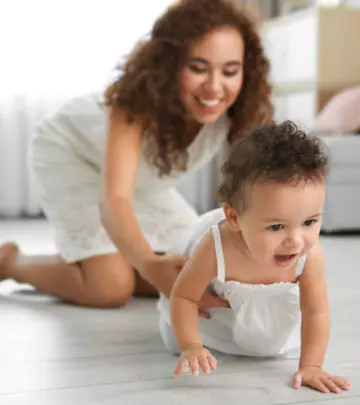
Image: Shutterstock
Most parents nowadays are well-educated about parenthood and are prepared for everything that is coming their way even before the baby arrives. It’s fun to imagine your little one going out on a picnic with you or perhaps taking a trip to an amusement park with your baby. But all this comes with many, many years of hard work. Take baby milestones, for example; from the moment your baby is born to its first birthday, they transform from a bundle to a little human. They learn to sit, stand, crawl, talk and even walk. Here in this article, we have collected the developmental milestones your baby will likely experience in the first year of their life. Read on!
1. Smiles
Image: Shutterstock
You’ve seen your fair share of baby tears after 2 months of restless nights and constant comforting. You might have caught a glimpse of a smile, but it could have just been gas. Our actual prize awaits us now. About two months into their lives, most babies will respond to your smiles with their own. Your baby’s infectious grin can frequently be prompted simply by hearing your voice or seeing your face.
2. Laughs
Image: Shutterstock
If your baby’s constant cries drive you crazy, try not to worry too much. Around the fourth month benchmark, you may anticipate hearing the sound that may top all others: your baby’s laughing. A baby’s natural ability to laugh is the most excellent part. Many squeals and giggles can be elicited simply by making goofy faces, tickling, or playing peek-a-boo.
3. Sleep Through The Night
Image: Shutterstock
A whole night’s sleep is the Holy Grail of parenthood, on par with the birth of their child or any other significant achievement. Of course, expecting a newborn to sleep through the night is impractical, but parents should know that help is on the way. Most newborns can sleep through the night by the time they are 4 to 6 months old. But again, some parents need to wake up multiple times for kids as old as 2 years too.
4. Sits Up
Image: Shutterstock
What a change in perspective there is when you’re no longer confined to your tummy and back! By the time they are five to six months old, most newborns can sit up if they have something to rely on (such as their hands across from them or a cushion). Babies often develop the ability to sit independently and firmly between 7 and 9 months.
5. Crawls
Image: Shutterstock
You might want to keep your gym membership renewal on hold if you have an 8-month-old baby. Your baby’s newfound mobility will force you into getting lots of exercises. Most infants learn to crawl using their hands and feet by 9 months, while some newborns prefer to creep or wiggle. Babies do not need to crawl, and those who opt to scoot or creep typically develop and meet other milestones on time.
6. Waves Bye-Bye
Image: Shutterstock
Saying “bye-bye” with a hand wave is more than a lovely gesture; it’s also a linguistic phrase. Most infants start to make the connection between words and what they signify by the time they are 9 months old. They associate the gesture with “goodbye” and know to do it when saying goodbye.
7. Eats Finger Food
Image: Shutterstock
Babies basically begin to self-feed when their parents lose interest in doing so. Babies’ hand-eye coordination improves between 9 and 12, allowing them to quickly grasp smaller items. Unfortunately, infants at this age are in the exploratory phase of their taste buds and will put just about anything in their mouths to see what happens. This is the age at which parents should make environmental safety a top priority for their children.
8. Stands On Their Own
Image: Shutterstock
At around 12 months, most infants can stand for limited periods without assistance. They take short, steady strides while clinging to fixed or immovable things. Make sure they have something steady to hold on to, like the crib bars or a handle around the walls.
9. Takes First Step
Image: Shutterstock
This is the pinnacle of infant development if you will. The first time a baby takes a step by themselves is likely to be the moment that gets the most attention and video shoots! However, not every baby learns to walk by when they turn one. Most infants start to walk between 9 and 17months, with the vast majority of them doing so by the time they are around 13 months old. So if your child is still crawling about, you don’t need to take multiple trips to your pediatrician or sit down to research from a baby book.
10. Says First Words
Image: Shutterstock
When your child reaches age one, you will experience the joy of hearing your child call your name. It will probably be a faint mumbling of ‘mumumum’ or ‘dadadada.’ Most infants reach this milestone when they have said their first accurate word and attempt to mimic their caregivers. Soon, your child will be able to express their thoughts and feelings to you through words and phrases.
Seeing your child grow from the little bundle who couldn’t lift their own head to the one who waves you ‘bye-bye’ is always overwhelming. The first year of a child is full of transformations; before you know it, the little lump is using the bookshelf to stand straight and grab their favorite toy. Many parents stress over millstones if their infant stops showing development by the book. But the truth is, every child grows and develops at their own pace, and if you are invested in regular checkups, and your pediatrician shows no concerns, there is probably no reason for you to panic over it. So, which of these milestones are you eagerly waiting for? Let us know in the comments section!


